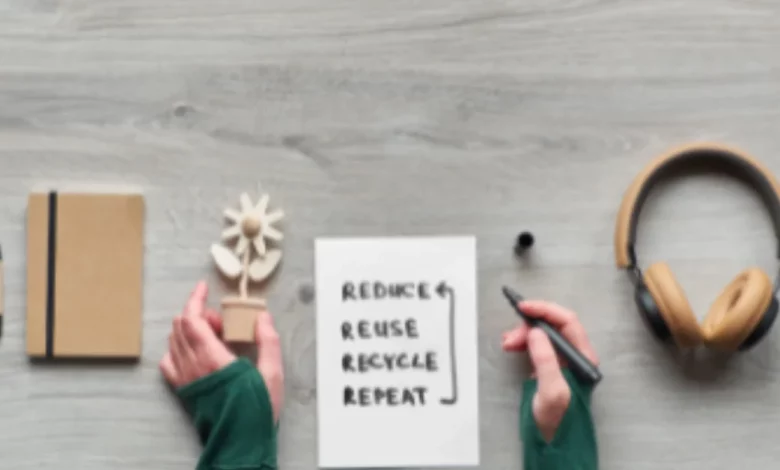6 Ways To Be More Eco-Conscious As You Travel

Travel may be harmful to the environment. For those who enjoy traveling, this is a hard truth to swallow. However, by simply educating yourself and being more aware, you can reduce your carbon footprint considerably.
Here are the best ways to be eco-conscious, even while traveling to the far corners of the world.
Table of Contents
1. Use Roadways Instead of Airways
The environmental impact of travel by air is one of the contributing reasons for global warming. Experts state that when fuel is burned at high altitudes, this has a larger impact than gas emissions from cars. While airlines are doing their best to improve fuel efficiency, there’s no hiding the smog they leave in their wake. So what can travelers do to minimize the damage? First, use other readily available transportation options. From trains to bus rentals to travel by boat. These are all options that emit far less carbon dioxide than flying.
Exploring alternative means of getting to your destination could become an adventure all on its own!
And who wouldn’t want to skip the excruciating security lines at airports?
2. Choose Eco-Friendly Lodging
What is the second largest cutback a traveler can make outside of air travel? Locating a hotel or lodging that meets various sustainability standards. If the accommodation claims to be environmentally friendly in the United States, it must have LEED certification. The US Green Building Council provides this certification to businesses that fulfill their requirement.
For eco-friendly hotels and resorts around the globe? The Global Sustainable Tourism Council provides eco-rating for popular vacation and tourist spots. Various certifications are available from different bodies. For example, the EarthCheck organization reviews structures along the following lines:
- Measuring greenhouse gas emissions
- Determining energy efficiency and management
- Evaluating energy conservation
- Monitoring freshwater resources and air quality
- Measuring the process of wastewater management and solid waste management
- Evaluating the processes for disposing of environmentally harmful substances
3. Travel Light!
Let’s assume you want to visit a distant tropical island. If there are no other means of transportation to your destination but air, certain strategies may still help. Traveling as light as possible helps air carriers cut down on the amount of fuel spent per flight. And less fuel means fewer carbon emissions being issued into our environment. This applies to other travel choices, too.
Some key ways to ensure you pack only things that you will use include:
- Choosing multipurpose clothes items.
- Don’t bring anything that will be available at your destination.
- Bring digital versions of books and papers by taking snapshots of important documents. Then, load up your eBook reader with your vacation reading material.
Choosing the right kind of accessories will also help you travel light. For example, leave the hairdryer behind and let your locks air dry.
4. Eat Local and In-season Offerings
The farther food must travel to get to you; the more gas was consumed for that purpose. Eating locally sourced food ensures the minimum amount of carbon emissions per plate of food you eat. Also, be careful to eat only what is in season. Foods that are out of season must be shipped in from far-off places, which is another massive factor in unnecessary fuel consumption.
5. Gear up to Reuse Instead of Buying and Throwing Away
Bring a refillable glass water bottle with you and refill as needed. Buying plastic water bottles each time you are thirsty is one of the most frequent actions by travelers. And one that you should avoid if you want to become an eco-conscious road warrior. Other behaviors to modify include the following:
- Say no to plastic bags at the checkout counter and place your bought items directly into your backpack or a reusable grocery bag.
- When in a hotel, hang up towels instead of tossing them on the floor. Towels can be used more than once before needing to be washed.
- Take short showers. You can save your indulgent soak for the hot springs.
- Avoid picking up brochures and other paper material that you will only end up throwing away. Instead, use your phone to capture the information you want to store and leave the newspaper or brochure where you found it.
6. Avoid Plastic Straws
If you’re like most people, you’ve become more conscientious about your use of plastic straws lately. Single-use straws are one of the top 10 items found during beach cleanups. In an effort to reduce the number of straws used and discarded each year, some establishments have made it their mission to go strawless.
You can help this movement by refusing a straw when offered or even carrying your own stainless steel or bamboo straw with you on your travels. It’s a small change that can make a significant impact over time.
Wrap Up
Among the activities that are bad for the environment, travel ranks high. And it might seem that individual actions to reduce our footprint on the environment will not make a dramatic difference. But all other significant change throughout history has been made in just this fashion—one person at a time. Not only that, but consider that your vacation time could be even more rejuvenating you behave in ways you know will not hurt the planet further.






